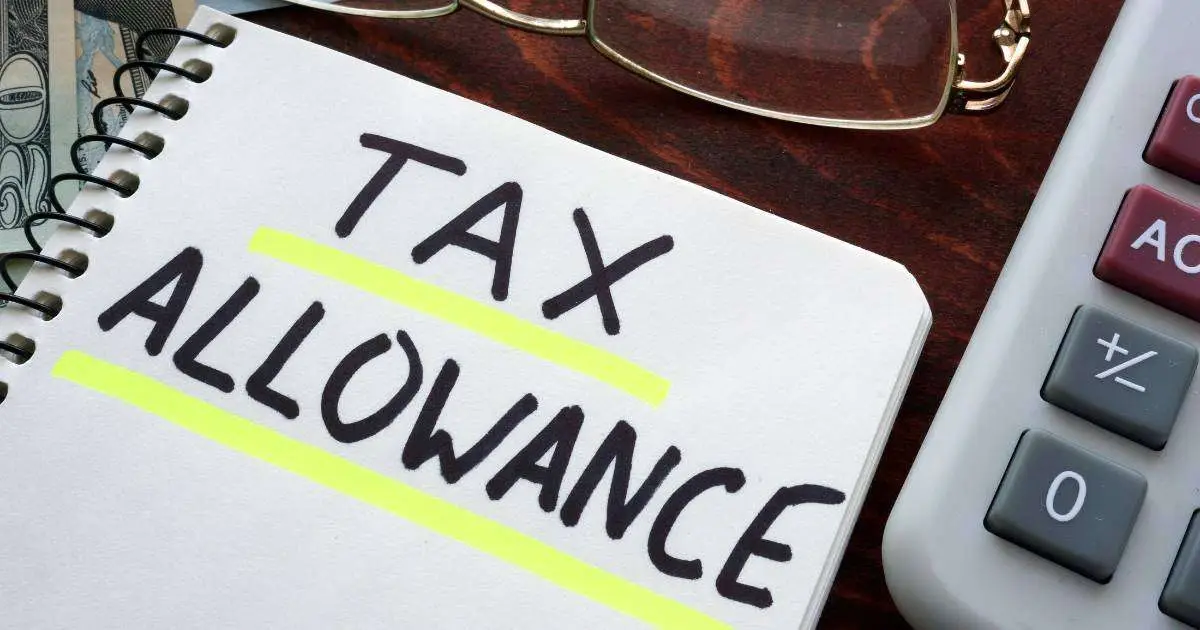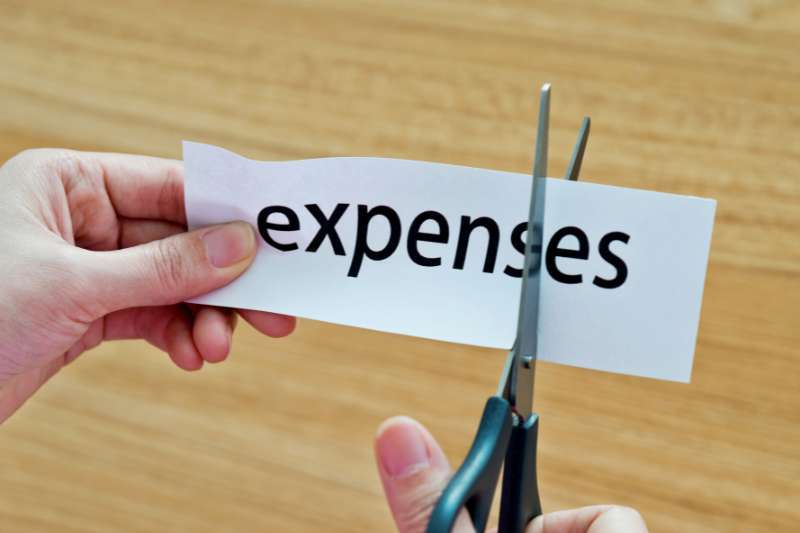Corporation Tax Reliefs And Allowances
In the UK, company tax and allowances are complex and ever-changing. It can be difficult to keep up with all the changes, so we’ve put together this brief to help you understand how they work. In this brief, we’ll cover the basics of business tax and allowances, as well as how to stay compliant with the latest changes.
What is Tax?
Tax is a compulsory payment to a government, typically levied on income, profits, or wealth. Taxes are used to fund public services and amenities, such as roads, schools, and hospitals. Tax systems can be progressive, proportional, or regressive.
Company Taxes Rates
The corporation tax rates are determined by the company’s profits:
1. Main Rate
- Rate: 25%
- Applies to: Companies with taxable profits over £250,000
- Description: This is the standard rate of corporation tax for larger companies and reflects the increase from the previous flat rate of 19%
2. Small Profits Rate
- Rate: 19%
- Applies to: Companies with taxable profits up to £50,000
- Description: This lower rate is intended to support smaller businesses by reducing their tax burden
3. Marginal Relief
- Rate: Effective rate varies between 19% and 25%
- Applies to: Companies with profits between £50,001 and £250,000
- Description: Marginal relief provides a gradual increase in the tax rate from 19% to 25% for companies whose profits fall between these thresholds
Other Tax Rates In The UK
Understanding the various tax rates that might affect your business is crucial. Here’s a breakdown of some of the main taxes:
a) Income Tax
This is a tax levied on the income of individuals and some types of business profits.
- Basic Rate: 20% on income up to £37,700
- Higher Rate: 40% on income between £37,701 and £125,140
- Additional Rate: 45% on income over £125,140
b) Capital Gains Tax
This tax applies to the profit from selling certain assets. The rates depend on the taxpayer’s income band:
- Basic Rate Taxpayers: 10% (18% for residential property)
- Higher/Additional Rate Taxpayers: 20% (28% for residential property)
c) Dividend Tax
Dividend tax rates vary based on the income band of the recipient:
- Basic Rate: 8.75% for dividends falling within the basic income tax band
- Higher Rate: 33.75% for dividends within the higher income tax band
- Additional Rate: 39.35% for dividends within the additional income tax band
Value Added Tax (VAT)
While not directly related to corporation tax, businesses should also consider VAT, which affects many companies, particularly limited companies:
- Standard Rate: 20% on most goods and services
- Reduced Rate: 5% on certain goods and services, such as children’s car seats and home energy
- Zero Rate: 0% on specific items like most food and children’s clothes
 Corporation Tax Allowances
Corporation Tax Allowances
These are deductions that businesses can claim on their taxable profits to reduce their tax liability. These allowances are designed to encourage investment, research and development, and other business activities that contribute to economic growth and job creation.
1. Annual Investment Allowance (AIA)
The Annual Investment Allowance allows businesses to deduct the full cost of qualifying plant and machinery from their profits before tax.
=> Current Limit: The AIA limit is set at £1,000,000 per year (as of April 2024). This generous allowance encourages businesses to invest in assets that contribute to their growth.
=> Qualifying Expenditures:
- Plant and Machinery: Includes office equipment, machinery, commercial vehicles (e.g., vans and lorries), and certain fixtures like kitchen fittings
- Exclusions: Cars, buildings, land, and items used for leasing are typically excluded
2. Capital Allowances
Capital allowances allow businesses to write off the cost of certain capital assets against taxable income.
=> Main Pool: Assets that do not qualify for the special rate pool are typically included here, with an 18% writing-down allowance.
=> Special Rate Pool: Includes assets such as long-life assets, integral features of buildings (e.g., lifts, heating systems), and thermal insulation. The writing down allowance is 6%.
=> First-Year Allowance (FYA):
- Offers 100% tax relief on qualifying investments in energy-saving technologies and water conservation
- Enhanced Capital Allowances (ECAs): Promote environmental sustainability by providing tax relief for energy-efficient equipment
=> Structures and Buildings Allowance (SBA):
- Applies to new commercial structures and buildings. The annual deduction is 3% of qualifying costs
3. Research and Development (R&D) Tax Relief
=> Description: R&D tax relief supports companies that work on innovative projects in science and technology.
=> Eligibility: Projects must aim to make an advance in science or technology and involve overcoming uncertainty.
=> Benefits:
- SMEs: Can deduct an additional 86% of their qualifying R&D costs, leading to a total deduction of 186%
- Large Companies: Can claim a Research and Development Expenditure Credit (RDEC) at 20% of qualifying R&D costs, with a net benefit of 16%
4. Patent Box Regime
=> Description: Encourages companies to commercialize patented inventions and retain their IP in the UK.
=> Benefit: A lower Corporation Tax rate of 10% on profits earned from patented inventions and certain other IP rights.
=> Eligibility: Companies must own or exclusively license the patents and actively participate in their development.
5. Super Deduction
=> Description: A temporary allowance was introduced to stimulate business investment post-COVID.
=> Benefit: Offers a 130% first-year deduction on qualifying plant and machinery investments, effectively reducing taxable profits by more than the cost of the asset.
=> Duration: Available for expenditures incurred between April 1, 2021, and March 31, 2024.
6. Employment Allowance
=> Description: Reduces the National Insurance contributions (NICs) liability for eligible employers.
=> Benefit: Up to £5,000 off the employer’s NICs bill per year.
=> Eligibility: Most businesses and charities, with some exceptions (e.g., if a director is the only employee).
7. Creative Industry Tax Reliefs
=> Description: Supports companies in the creative industries, such as film, television, video games, animation, and museums.
=> Benefits:
- Film Tax Relief: Offers a payable tax credit of 25% on UK-qualifying core expenditure
- Video Games Tax Relief: Provides relief on 80% of the core expenditure
- Theatre Tax Relief: Allows companies to claim a deduction of up to 80% of qualifying production costs
8. Business Rates Relief
=> Description: Reductions in business rates for qualifying properties and industries.
=> Types:
- Small Business Rate Relief: For businesses with a rateable value of less than £15,000
- Retail Discount: Temporary relief for shops, restaurants, and other retail properties
9. Loss Relief
=> Description: Businesses can use trading losses to reduce tax liabilities.
=> Benefits:
- Carry Back: Offset losses against profits from previous years, leading to tax refunds
- Carry Forward: Use losses against future profits
- Group Relief: Transfer losses to other group companies to offset their profits
10. Property Allowance
=> Description: Simplifies the tax calculation for individuals earning income from property.
=> Benefit: An allowance of £1,000 for property income, allowing individuals to deduct this amount or actual expenses (if greater).
11. Apprenticeship Levy Allowance
=> Description: Supports employers in funding apprenticeship training.
=> Benefit: Employers can reduce their apprenticeship levy payments by up to £15,000.
12. De Minimis State Aid
=> Description: Various tax reliefs that fall under EU state aid rules.
=> Examples:
- Enterprise Investment Scheme (EIS)
- Seed Enterprise Investment Scheme (SEIS)
- Venture Capital Trusts (VCTs)
Allowable Expenses for Corporation Tax
Businesses can deduct certain expenses from their taxable profits, reducing the amount of Corporation Tax they owe.
- Rent or Lease Payments: For business premises
- Salaries and Wages: Paid to employees
- Cost of Goods Sold: Including raw materials and inventory
- Business Travel: Including transport and accommodation costs
- Marketing and Advertising Expenses
- Professional Fees: Such as accounting or legal fees
- Depreciation on Business Assets: Though handled differently for tax purposes
The type of business you operate can influence which expenses are tax-deductible. Consulting an accountant can help clarify allowable business expenses. For instance, retail businesses can deduct the cost of goods sold, while service-oriented businesses can focus on wage-related expenses.
Register For VAT
If you are starting a business as a corporation, it is essential to register for Corporation Tax with HM Revenue and Customs (HMRC).
- Incorporate Your Company: Register your company with Companies House
- Register for Corporation Tax: Use the HMRC online service. You’ll need your company’s Unique Taxpayer Reference (UTR)
- Provide Necessary Information: Include details such as your company name, address, and the date you started your business
Registration is typically required within three months of starting to do business.
Filing Company Tax Return
Filing a company tax return is a crucial responsibility for business owners.
- Gather Required Documents: Have your financial statements, invoices, and receipts ready
- Stay Updated: Keep informed about the latest tax changes and regulations
- Seek Professional Advice: Consider consulting a tax advisor for complex tax matters
- File on Time: Ensure your tax return is submitted by the deadline, typically 12 months after the end of the accounting period
Paying Corporation Tax Bill
After filing your tax return, you’ll need to pay any Corporation Tax owed.
- Payment Deadline: Nine months and one day after the end of your company’s accounting period
- Online Payment: Use HMRC’s online services for quick and secure payments
- Extensions: Contact HMRC if you need more time or if you have issues making a payment
Common Tax Mistakes Made by Businesses
Avoiding common tax mistakes can save your business time and money, especially regarding corporation tax reliefs and allowances.
Here are some to watch out for:
- Late Filing: Missing tax return deadlines can result in penalties
- Incomplete Returns: Ensure accuracy and completeness in your tax return
- Not Claiming Allowances: Make full use of available tax reliefs
- Outdated Tax Knowledge: Stay informed about changes in tax legislation
- Overpaying Taxes: Double-check calculations and consult with a tax professional
Frequently Asked Questions
=> DO YOU PAY CORPORATION TAX ON SALARY?
No, in the UK, you do not pay Corporation Tax on salary. Corporation Tax is levied on a company’s profits, which can include trading profits, investment profits, and capital gains, but not on salaries.
=> WHAT IS THE TAX ALLOWANCE FOR A LIMITED COMPANY?
In the UK, limited companies don’t receive a personal tax allowance like individuals do. Instead, they are subject to Corporation Tax on their profits.
– A main rate of 25% for companies with profits over £250,000.
– A lower rate, often referred to as the “small profits rate,” of 19% for companies with profits up to £50,000.
– For companies with profits between £50,000 and £250,000, a tapering relief is applied, which means the effective tax rate will gradually increase from 19% to 25%.
=> HOW DO I AVOID 25% CORPORATION TAX?
– Utilise Available Allowances and Reliefs
– Pension Contributions
– Capital Allowances
– Income Shifting
– Deferral of Income
– Claim Goodwill
– Charitable Donations
Conclusion
Company tax and allowance in the UK are complex, ever-changing, and can be difficult to keep up with. The tax laws governing company tax have changed significantly since 2007 when new legislation was introduced.
As a result of these changes personal, pensions or companies need to stay aware of their obligations if they want to avoid hefty fines or penalties from HMRC (Her Majesty’s Revenue and Customs).



 Corporation Tax Allowances
Corporation Tax Allowances